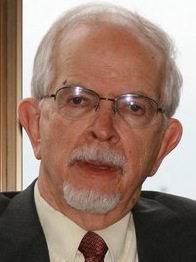His early successes have already shaped the campaign to the left of the political spectrum on other issues.
Sanders has never made an issue of his ethnic heritage. In his New Hampshire victory speech, he repeated his standard campaign personal history talking point, recalling that his father was a "refugee from Poland."
His presence in the race may also give the media protection from a major fear.
The mainstream media is skittish when discussing Jewish religion and ethnicity. Journalists (and politicians) live with the perpetual fear of being branded anti-semitic if they stumble when crossing the verbal minefield of Jewishness in public life.
It is the central purpose of Israel's hasbara (propaganda) campaign to label any and all criticism of the state of Israel as anti-semitic. Hasbara has long been the major generator of the fear of "anti-semitic branding."
This fear gives Israel a "iron wall" within which it can retreat when criticism comes from outside. By hiding behind that hasbara "iron wall," Israel is able to defend actions by the state of Israel with lies and deception about its military occupation and oppressive treatment of Palestinians.
Sanders is quick to assert that he honors both his religious and secular Jewish heritages. No word on how he responds to one recent media representative who wrote that Sanders possessed an "attenuated" view of his faith.
If journalists were still educated in the humanities, which includes religion, that dishonest adjectival dismissal might have been avoided.
Frank Rich's presumption that Clinton would be a safer candidate against any Republican may still prove to be correct. Clinton's defeat in New Hampshire may be only a bump in her road toward her certain coronation.
Still, Rich had his misgivings even before Iowa and New Hampshire:
"If Clinton continues to lose altitude through self-inflicted wounds, through Sanders's ability to sell himself to a wider electorate, or through further revelations about her and Bill Clinton's dubious buck-raking from Wall Street, corporate America, and foreign governments, the Democrats are left with only one plan B: Bernie Sanders."
Clinton wants to overcome that bump in the road. She made a good start when she reached for rhetorical heights in her New Hampshire concession speech. She was energetic, not crestfallen. She was determined to recover in Nevada and South Carolina. Rolling Stone reported her look to the future:
"After a big loss to Bernie Sanders in the New Hampshire Democratic primary Tuesday, Hillary Clinton used her concession speech to shift the focus to the South Carolina and Nevada contests and beyond, and to tout her progressive credentials on issues that have dominated Sanders' rising campaign -- namely campaign finance reform and the power of Wall Street.
"'We're going to fight for real solutions that make a real difference in people's lives,' she said. 'That is the fight we are taking to the country. What is the best way to change people's lives so we can all grow together? Who is the best change-maker? And here's what I promise: I will work harder than anyone to actually make the changes that make your lives better.'"
If she keeps talking that way all the way to her return to the White House in her own right, Bernie Sanders has already won a partial political victory by driving her to the political left.
Next up with a heavy concentration of minority voters coming to cast votes, are the Nevada Democratic Caucus (February 20); South Carolina Republican Primary (February 20); Nevada Republican Caucus (February 23); and South Carolina Democratic Primary (February 27).
(Note: You can view every article as one long page if you sign up as an Advocate Member, or higher).





